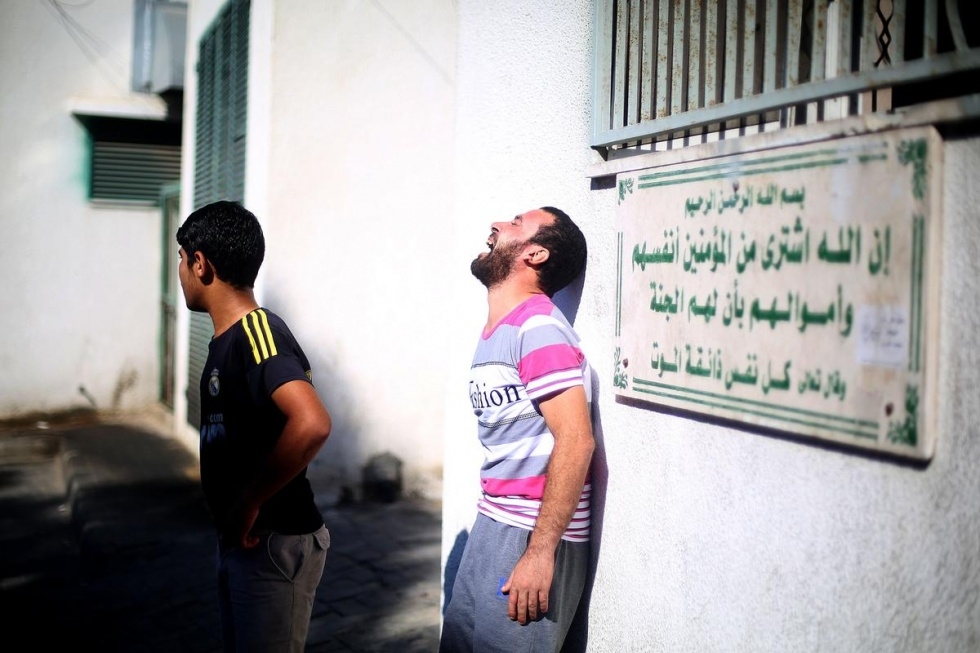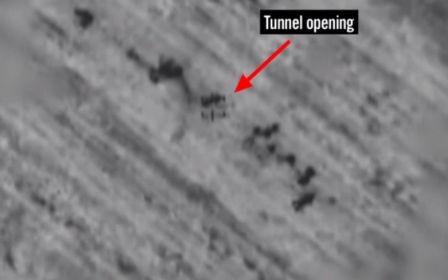Israel's tactics provoke a sense of deja vu

Amid its latest onslaught against Gaza, Israel's repeated use of long-discredited propaganda and battlefield tactics belies the supposed sophistication of its PR and military. As in its previous attacks against Palestinians - as well as Lebanese - Israel is again touting its weaponry's pin-point precision. It does so to try to convince the world that unlike its enemies, it minimises civilian casualties and does not target civilians.
However, in every such operation, the vast majority of deaths and injuries have been civilian. So far in Gaza, almost 80% of Palestinians killed have been civilian, according to the UN Office for the Co-ordination of Humanitarian Affairs. Children account for more than a quarter of deaths and almost a third of injuries.
Israel has also laid waste to civilian infrastructure. More than 1,250 homes have been completely or partially destroyed, and a further 14,000 or so damaged. Tens of thousands of civilians have been displaced. Israel has bombed and destroyed schools, clinics, hospitals, a centre for the disabled, mosques, ministries, power lines, and water and sanitation facilities.
As a result, the refugee agency UNRWA says Gaza's water and sewage networks are "as good as destroyed", and 90% of the drinking water "is not fit for human consumption". The World Health Organization says the health system is on the brink of collapse.
The level of human loss and destruction in Gaza is "immense," UNRWA said, its head adding: "Never will even the most impressive television footage properly capture the depth of fear and despair felt in the homes and hearts of Gazans who are yet again facing death, devastation and displacement." So much for Israel's assurance that it is "taking into consideration that there are also civilians in Gaza."
Given its advanced weaponry and the level of civilian suffering, one can only draw three possible conclusions, all of them ominous: either Israel is deliberately targeting civilians, or it is too incompetent to handle such weaponry, or it deems Gazans generally to be legitimate military targets (certainly its definitions of legitimate targets make a mockery of the laws of war).
In any case, Israel is being duplicitous in portraying this as a fight specifically against Hamas, when the vast majority of suffering and damage is civilian. This is in fact a war against Gaza's population. The same goes for the last invasion of Lebanon, portrayed as a war against Hezbollah when the wider Lebanese state and people bore the brunt.
When fighting Hamas, Hezbollah or other groups, under international law differentiation must be made between their military and non-military wings. However, Israel considers any member or service of these movements a legitimate target. An example is the bombing this week of the home of Hamas political leader Mahmoud Zahar. Hypocritically, Israel was outraged by the assassination of its tourism minister Rehavam Ze'evi in 2001.
As it is currently doing, a knee-jerk tactic of Israel is to dispute local casualty figures and describe them as exaggerated, regardless of proper documentation. During the last invasion of Lebanon, the Health Ministry's requirements in compiling the death toll were so stringent that the total could be described as conservative. When such figures are corroborated by the UN and international human rights organisations, Israel accuses them of bias and collusion.
Another familiar Israeli strategy is to try to foster a compassionate image of its military by highlighting its warnings to civilians prior to launching attacks. Israel used to phone people prior to bombing their homes, but has now adopted a tactic called a "roof-knock". This entails dropping a smaller bomb on the roof of a building before dropping a larger one that destroys it. Basically, Israel warns of an imminent bombing... by dropping a bomb.
It seems to deem this more humane than a phone call. Either way, warning that one's home will be destroyed does not make the destruction legal or valid. "There is no way that firing a missile at a civilian home can constitute an effective 'warning'," wrote Amnesty International, which "has documented cases of civilians killed or injured by such missiles in previous Israeli military operations on the Gaza Strip."
The same is happening this time. These "roof-knocks" have killed and injured civilians, and made their homes uninhabitable. The time given to evacuate is often ludicrously short (a few minutes, if that), and sometimes the follow-up bomb is dropped sooner than warned.
Where are families supposed to flee? There are fuel shortages and no bomb shelters in Gaza, its two borders - with Israel and Egypt - are closed, and nowhere seems to be safe from bombardment. Yet Israel this week has warned 100,000 civilians to leave northern Gaza. As The Daily Show host Jon Stewart asked: "Are they supposed to swim for it?"
Israel says a home is a legitimate target because it might house a fighter. By that logic, Hamas would be justified in killing entire families because of the possible presence of someone among them who serves in the army. Given Israel's compulsory military service, that would be a lot of households. Israel's bombing of specific homes has also resulted in the destruction of surrounding buildings, and the death and injury of their inhabitants.
"Unless the Israeli authorities can provide specific information to show how a home is being used to make an effective contribution to military actions, deliberately attacking civilian homes constitutes a war crime and also amounts to collective punishment against the families," wrote Amnesty International.
Under international humanitarian law, in case of doubt, buildings ordinarily used for civilian purposes are presumed not to be legitimate military targets. According to Human Rights Watch, "the Israeli failure to demonstrate why attacks that are killing civilians are lawful raises serious questions as to whether these attacks are intended to target civilians or wantonly destroy civilian property."
HRW added: "There have been no reports of secondary explosions after Israeli airstrikes on the homes, which would have indicated that armed groups had stored explosives or rockets there. Israel has not explained what military advantage it gained by attacking the homes."
Then there is the familiar claim that Palestinian fighters use civilians as human shields (the same accusation made against Hezbollah). What Israel means precisely by the term "human shields" is not always clear or consistent. However, the idea that these movements, as a matter of policy, put in harm's way civilians who constitute their support base is illogical and hardly conducive to maintaining vital public backing.
Regarding Israel's 2008-2009 invasion of Gaza, Amnesty International said it "found no evidence that Hamas or other Palestinian fighters directed the movement of civilians to shield military objectives from attacks."
It also "found no evidence that Hamas or other armed groups forced residents to stay in or around buildings used by fighters, nor that fighters prevented residents from leaving buildings or areas which had been commandeered by militants."
Israel's claims are ironic, given that the UN Committee on the Rights of the Child last year condemned its "continuous use of Palestinian children as human shields" - a violation of the Geneva Conventions. Israel's literal use of Palestinian civilians to shield its troops is amply documented, including testimonies from soldiers and those they have used.
Israel's continued reliance on discredited propaganda and military tactics is perhaps a reflection that too many people have unquestioning faith in the so-called "most moral army in the world".
- Sharif Nashashibi is an award-winning journalist and analyst on Arab affairs. He is a regular contributor to Al Arabiya News, Al Jazeera English, The National, and The Middle East magazine. In 2008, he received an award from the International Media Council "for both facilitating and producing consistently balanced reporting" on the Middle East.
The views expressed in this article belong to the author and do not necessarily reflect the editorial policy of Middle East Eye.
Photo credit: Relatives of 4 Palestinian children killed in Israeli airstrike mourn at their funeral in Gaza on July 16, 2014 (AA)
Stay informed with MEE's newsletters
Sign up to get the latest alerts, insights and analysis, starting with Turkey Unpacked
Middle East Eye delivers independent and unrivalled coverage and analysis of the Middle East, North Africa and beyond. To learn more about republishing this content and the associated fees, please fill out this form. More about MEE can be found here.





